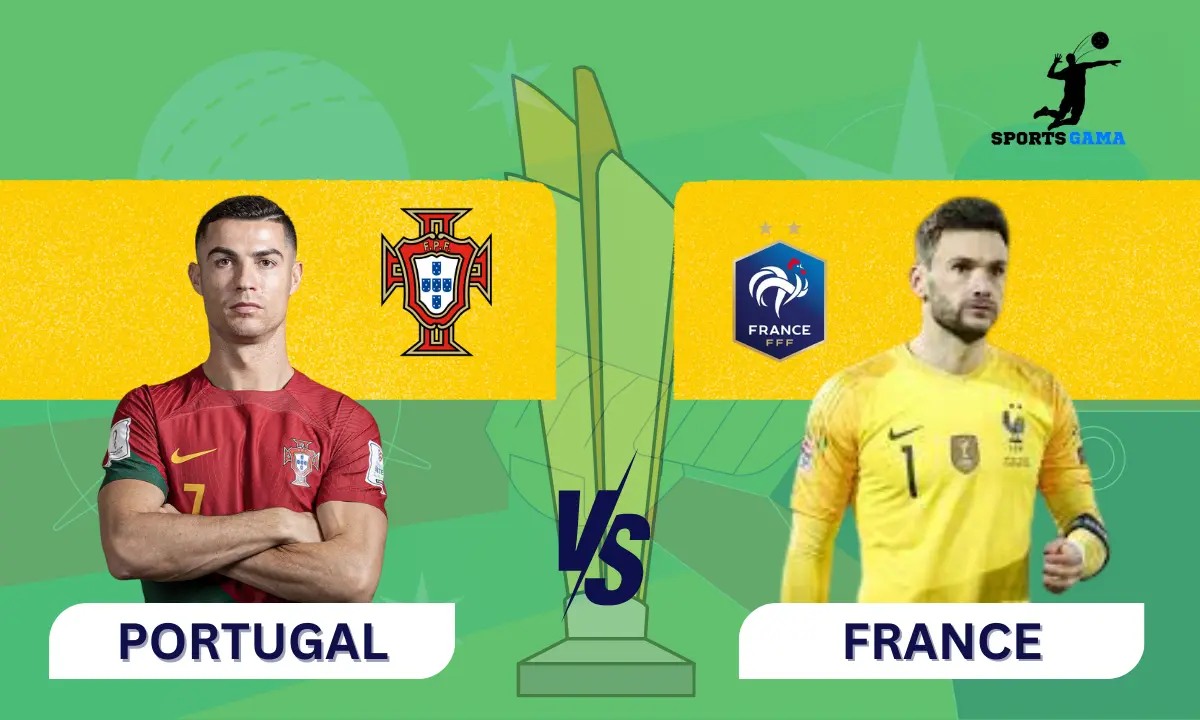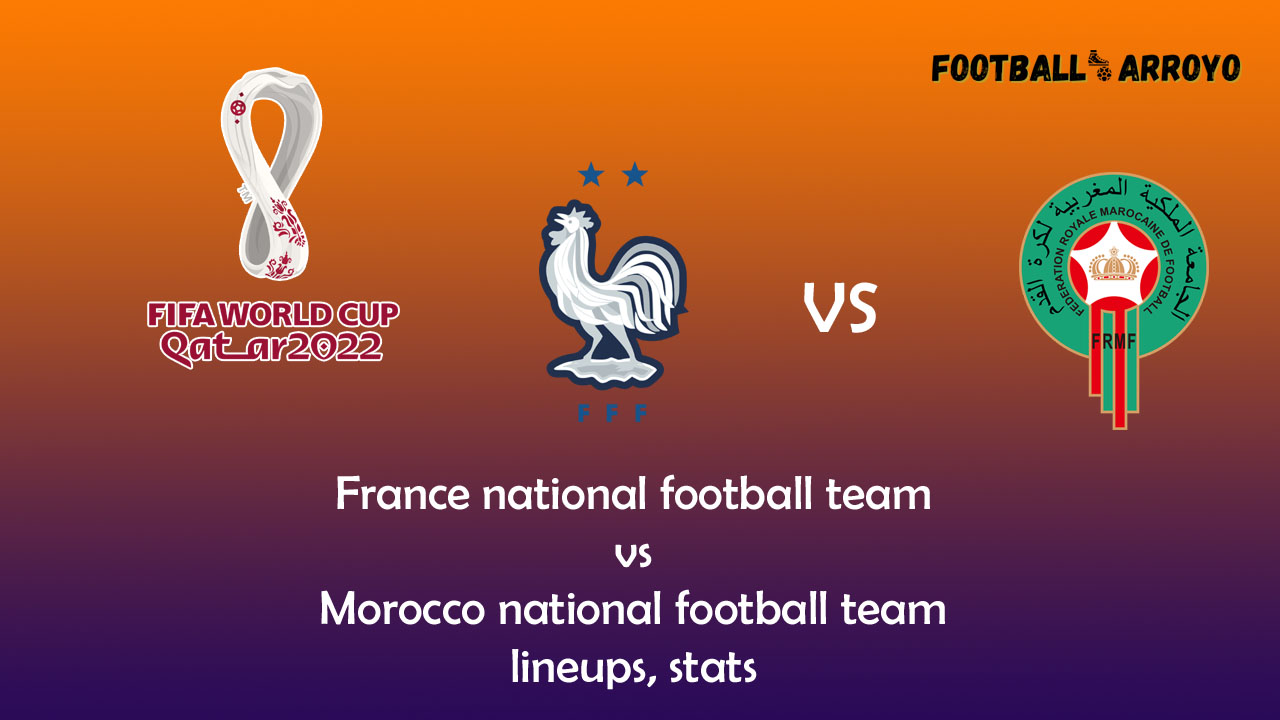The rivalry between the Belgium and France national football teams is one of the most captivating spectacles in the world of sports. Both teams have a storied history filled with exceptional talent and tactical brilliance that make their encounters unforgettable. This article will take an in-depth look at the lineups of the Belgium National Football Team and the France National Football Team, dissecting their strengths, weaknesses, and strategic approaches.
Belgium and France are two of the most powerful teams in international football, consistently demonstrating their dominance on the global stage. Their lineups reflect their dedication to excellence and their ability to adapt to various playing styles. By examining their player selections, formations, and tactical strategies, we can uncover what makes these teams so successful.
This analysis aims to provide a thorough overview of the Belgium vs France lineups, offering fans and enthusiasts a deeper understanding of the nuances that define these powerhouse teams. Whether you're a passionate supporter or simply interested in the intricacies of football, this article will enhance your appreciation for the artistry and skill displayed by both teams.
Read also:Discover The Enchanting World Of Bubble Guppies
Content Overview
- Player Profiles: Key Figures in Each Team
- Team Legacy and Achievements
- Tactical Strategy and Formations
- Player Contrast: Belgium vs France
- Match Records: Head-to-Head Analysis
- Scoring Stats: Goal Scoring Patterns
- Defensive Traits: Strengths and Strategies
- Midfield Insights: Dynamics and Creativity
- Coaching Impact: Philosophy and Influence
- Young Talent: Future Prospects and Emerging Stars
Player Profiles: Key Figures in Each Team
To truly appreciate the lineups of both teams, it is essential to understand the standout players who define their respective squads. Below, we provide detailed profiles of some of the most influential players from Belgium and France, highlighting their vital contributions and statistics.
Belgium's Star Players
| Name | Position | Age | Club |
|---|---|---|---|
| Kevin De Bruyne | Midfielder | 31 | Manchester City |
| Romelu Lukaku | Striker | 30 | Chelsea |
| Thibaut Courtois | Goalkeeper | 30 | Real Madrid |
France's Star Players
| Name | Position | Age | Club |
|---|---|---|---|
| Kylian Mbappé | Striker | 24 | Paris Saint-Germain |
| Antoine Griezmann | Midfielder | 32 | Atletico Madrid |
| Hugo Lloris | Goalkeeper | 36 | Tottenham Hotspur |
Team Legacy and Achievements
The histories of the Belgium National Football Team and the France National Football Team are rich with accomplishments and milestones. Known as the "Red Devils," Belgium has steadily risen in prominence, reaching the semi-finals of the FIFA World Cup in 2018. France, meanwhile, has a storied legacy, having claimed the World Cup twice—in 1998 and 2018.
Both teams have excelled in the UEFA European Championship, with France lifting the trophy on three occasions and Belgium achieving a semi-final appearance in 1980. Their histories are deeply intertwined, with numerous encounters in international competitions contributing to their enduring rivalry.
Exploring their historical context offers valuable insights into their current lineups and strategies. The players draw inspiration from their predecessors, striving to replicate the success of past generations while forging their own legacy.
Tactical Strategy and Formations
Tactical strategy plays a crucial role in shaping the lineups of both teams. Belgium frequently employs a 3-4-3 formation, which allows them to dominate possession and create scoring opportunities through their dynamic midfield. This formation also provides defensive stability, with wing-backs contributing significantly to both attack and defense.
Under the guidance of Didier Deschamps, France prefers a 4-2-3-1 formation. This setup enables them to capitalize on the speed and skill of Kylian Mbappé on the flanks while maintaining a robust midfield presence. The flexibility of this formation allows France to adapt seamlessly to different opponents and match scenarios.
Read also:Hdhub4u Hindi Your Ultimate Destination For Highquality Movies And Entertainment
Both teams prioritize ball possession and quick transitions, making their matches exhilarating and unpredictable. Their tactical versatility ensures they remain competitive against any opposition.
Player Contrast: Belgium vs France
Goalkeepers
Thibaut Courtois and Hugo Lloris are among the finest goalkeepers in the world. Courtois, renowned for his commanding presence and shot-stopping ability, has been a pivotal figure in Belgium's success. Lloris, with his leadership and experience, has been a cornerstone of the French team for over a decade.
Defenders
Belgium's defensive line, featuring Toby Alderweireld and Jan Vertonghen, is robust and experienced. France, on the other hand, boasts young talents like Dayot Upamecano and Ibrahima Konaté, who bring energy and athleticism to the backline. Both teams excel in defensive organization, ensuring they remain formidable opponents.
Midfielders
Kevin De Bruyne and Antoine Griezmann serve as the creative hubs of their respective teams. De Bruyne's exceptional vision and passing range set him apart, while Griezmann's versatility and goal-scoring ability make him indispensable to France. Their contributions are vital to the success of their teams.
Forwards
Romelu Lukaku and Kylian Mbappé represent two distinct styles of attacking play. Lukaku's physicality and clinical finishing complement Belgium's attacking strategy, while Mbappé's speed and dribbling skills make him a constant threat for France. Together, they embody the diverse attacking prowess of their teams.
Match Records: Head-to-Head Analysis
When Belgium and France face off, the matches are often high-stakes encounters with significant implications. Their clashes in the UEFA Nations League and World Cup qualifiers have been fiercely contested, showcasing the best of both teams.
Data from previous matches indicate that France has a slight advantage in terms of head-to-head results. However, Belgium's recent performances suggest they are narrowing the gap. The tactical battles between Roberto Martínez and Didier Deschamps add an extra layer of intrigue to these matches.
Analyzing past encounters helps identify patterns and trends that may influence future matchups. Understanding these dynamics is essential for predicting outcomes and appreciating the nuances of the game.
Scoring Stats: Goal Scoring Patterns
Goal scoring is a critical component of football, and both Belgium and France excel in this area. Belgium's attacking trio of Romelu Lukaku, Kevin De Bruyne, and Eden Hazard has been highly productive in recent years, with Lukaku leading as the team's top scorer.
France relies on the explosive talent of Kylian Mbappé, who has established himself as one of the most feared strikers globally. Antoine Griezmann's ability to contribute goals and assists makes him an invaluable asset to the team.
Statistical analysis of goal-scoring patterns reveals that both teams have a well-balanced attack, with contributions coming from various positions. This diversity in scoring options makes them challenging to defend against.
Defensive Traits: Strengths and Strategies
Defense is as crucial as attack, and both Belgium and France possess strong defensive units. Belgium's backline, previously led by Vincent Kompany and now featuring Toby Alderweireld, has been a bastion of strength. Their ability to read the game and execute crucial interventions has been instrumental in their success.
France's defensive line, anchored by Hugo Lloris in goal, is equally formidable. Experienced defenders like Raphaël Varane and younger talents like Dayot Upamecano ensure they have a balanced and versatile defensive setup. Both teams employ a high press when necessary, forcing opponents into mistakes and creating scoring opportunities from turnovers.
Their defensive prowess is a testament to their organizational skills and tactical discipline, reinforcing their status as top-tier teams.
Midfield Insights: Dynamics and Creativity
The midfield is the engine room of any football team, and both Belgium and France boast world-class midfielders who drive their teams forward. Kevin De Bruyne's playmaking ability and vision set him apart as one of the best midfielders globally. His precision in finding teammates creates numerous scoring opportunities for Belgium.
France's midfield is anchored by N'Golo Kanté, whose tireless work rate and ability to disrupt opposition play make him invaluable. Antoine Griezmann's versatility allows him to operate in multiple roles, contributing goals and assists while also supporting the defensive effort.
The midfield dynamics of both teams are characterized by creativity, discipline, and adaptability. Their ability to control the tempo of the game gives them a significant advantage over their opponents.
Coaching Impact: Philosophy and Influence
The coaching philosophies of Roberto Martínez and Didier Deschamps have played a pivotal role in shaping the lineups of Belgium and France. Martínez's emphasis on possession-based football and attacking play has transformed Belgium into a formidable force. His ability to maximize the potential of his players has been evident in their performances on the international stage.
Deschamps, a World Cup-winning captain himself, brings a wealth of experience and tactical acumen to the French team. His pragmatic approach, combined with a focus on team cohesion, has led France to numerous successes. His leadership and decision-making have been instrumental in guiding the team through challenging situations.
The influence of their coaching philosophies is clearly reflected in the way both teams approach matches, with a strong emphasis on strategy and execution.
Young Talent: Future Prospects and Emerging Stars
The future looks promising for both Belgium and France, with a new generation of talent emerging. Belgium's youth academy has produced players like Youri Tielemans and Jeremy Doku, who are already making significant contributions in European football. Their development ensures the team will remain competitive for years to come.
France, with its long-standing tradition of nurturing young talent, continues to produce world-class players. Promising talents like Eduardo Camavinga and Ousmane Dembélé are poised to carry the torch for the national team, building on the legacy of their predecessors.
Investing in youth development and maintaining a strong pipeline of talent will be essential for both teams as they strive to sustain their dominance in international football.
Final Thoughts
In summary, analyzing the lineups of the Belgium National Football Team and the France National Football Team provides valuable insights into their strengths, weaknesses, and strategic approaches. Both teams possess world-class talent and a rich history of success, making their matches must-see events for football enthusiasts.
We invite readers to share their thoughts and opinions in the comments section below. Who do you believe holds the edge in the Belgium vs France rivalry? Additionally, explore other articles on our site for more in-depth analyses of football teams and players.


